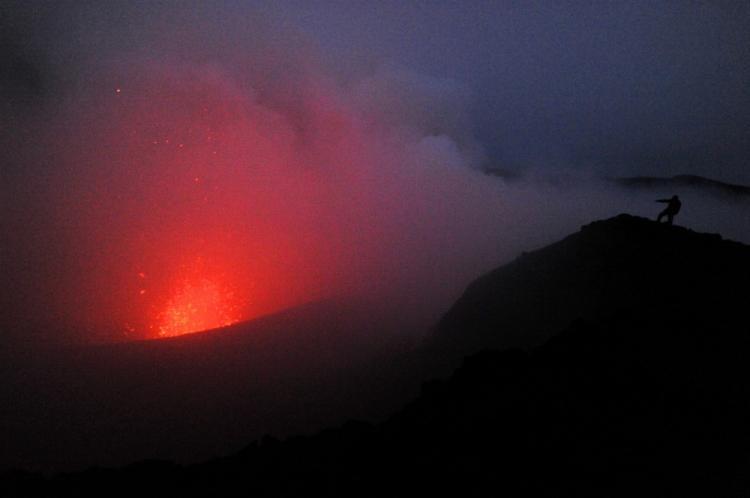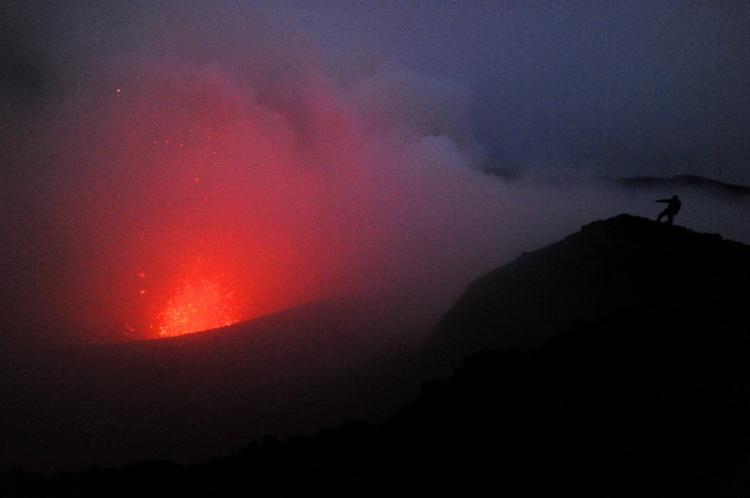Mounting evidence suggests volcanic activity tens of thousands of years ago in a part of India called the Deccan Traps could have killed off the dinosaurs, according to recent U.S. research.
This massive outpouring of lava may have injected sulfur and carbon dioxide into the atmosphere, causing global warming and ocean acidification that led to the dinosaur die-off around 65 million years ago during the Cretaceous-Tertiary (K-T) extinction.
By contrast, according to the more popular Alvarez hypothesis, a giant meteorite crashed off Mexico, releasing toxic dust and gas into the atmosphere, which blocked out the sun and cooled the Earth.
“Our new information calls for a re-assessment of what really caused the K-T mass extinction,” study co-author Gerta Keller at Princeton University told Live Science.
Keller’s team studied marine sediments discovered off Eastern India almost 2 miles beneath the surface, and found they contained many fossils of tiny plankton from around the K-T boundary. Many of the plankton species reduced in number after layers of lava were laid down.
Most plankton species disappeared slowly, but a genus with a simple shell called Guembilitria proliferated. The researchers observed similar patterns in other marine sediments, including from Egypt, Spain, and Texas.
“We call it a disaster opportunist,” Keller told LiveScience. “It’s like a cockroach—whenever things go bad, it will be the one that survives and thrives.”
Guembilitria may have burgeoned due to acid rain from sulfur released by the Deccan Traps binding with calcium and preventing many sea animals from making their shells.
Previously, the team had found iridium in Mexican sediments indicative of an asteroid strike, but these sediments would have been after the extinction.
Also, they say the asteroid was too small to match the levels of sulfur and carbon dioxide seen in the rocks; it may have worsened the extinction, but could not have caused it.
The research was presented at the annual meeting of the American Geophysical Union on Dec. 5, 2012.
The Epoch Times publishes in 35 countries and in 21 languages. Subscribe to our e-newsletter.






